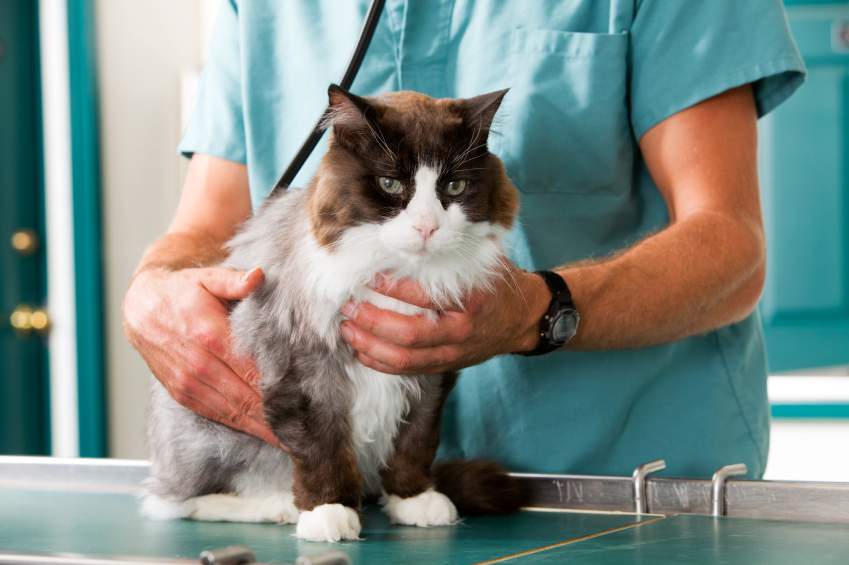
Inevitably, when I tell people that part of what I do as a veterinarian is performing acupuncture, I get one of two responses. Either “Really? Acupuncture for animals?”, or “How wonderful! I’ve had acupuncture, and since I know it works for me, that’s great that animals can have it too!”
I don’t blame people who have the first response, as it was similar to how I felt about it when I graduated from veterinary school about seven years ago. During the time period since, I saw more and more of my patients who suffered from injuries or chronic diseases benefit from acupuncture, and thus, I decided to go back to school and learn more about it.
Acupuncture, like all medicine, has continuously evolved over the last 3,000 years. While it has generally been explained in the past as altering various “energy fields” in the body, over the last few decades medical researchers have begun to investigate how acupuncture actually works, and to demonstrate its worth in research studies. The American Veterinary Medical Association, the American Medical Association, and the National Institute of Health all currently recognize acupuncture as a valid modality useful for a variety of diseases.
What we now understand is that acupuncture affects the body by stimulating specific sites near blood vessels and nerves, which then stimulate the central nervous system (comprised of the brain and spinal cord). This in turn affects various body systems by increasing circulation, releasing hormones and neurotransmitters (including endorphins), modulating the immune system, optimizing nerve transmission, and relieving muscle spasms and pain. Depending on the points stimulated, more specific results can be achieved ranging from increasing gastrointestinal motility to improving kidney function.
There are many conditions that can benefit from acupuncture. Most people who are somewhat familiar with acupuncture know that it can be beneficial for musculoskeletal and neurological problems such as arthritis, disk disease, and tendon or ligament injuries. Acupuncture can also help quite a bit with gastrointestinal problems, such as inflammatory bowel disease and megacolon (a condition in cats where the colon stretches out, making it hard to defecate); skin problems, such as hot spots and allergies; urinary tract disorders, such as incontinence or feline urine spraying; respiratory disorders, such as asthma; and other various issues such as dry eye or even seizures. Additionally, it can help address a variety of symptoms in pets with cancer. Sometimes acupuncture is used to treat the primary symptom in these patients, such as pain from a bone tumor, or the side effects they may have from medications, such as inappetance or nausea.
Whether or not acupuncture will be beneficial often depends on the cause of the problem. For example, if seizures have an underlying cause such as a liver disorder or a brain tumor, acupuncture is less likely to help than if those seizures are caused by epilepsy (seizures of an unknown origin where other causes have been ruled out). This is why I always advise my acupuncture patients to see their regular veterinarian first to make sure diseases with a known or standard treatment are not being overlooked. Acupuncture will, however, often complement traditional western medicine treatments. Many diseases such as inflammatory bowel disease or asthma may require drugs such as steroids, and sometimes the dosages can be lowered with acupuncture as an adjunctive treatment, particularly if the pet is suffering from unwanted side effects of those drugs. It is important to note that acupuncture is not a cure for most of the disorders it treats, but it can help the body to cope with disease, thereby increasing the quality of life for the pet.




